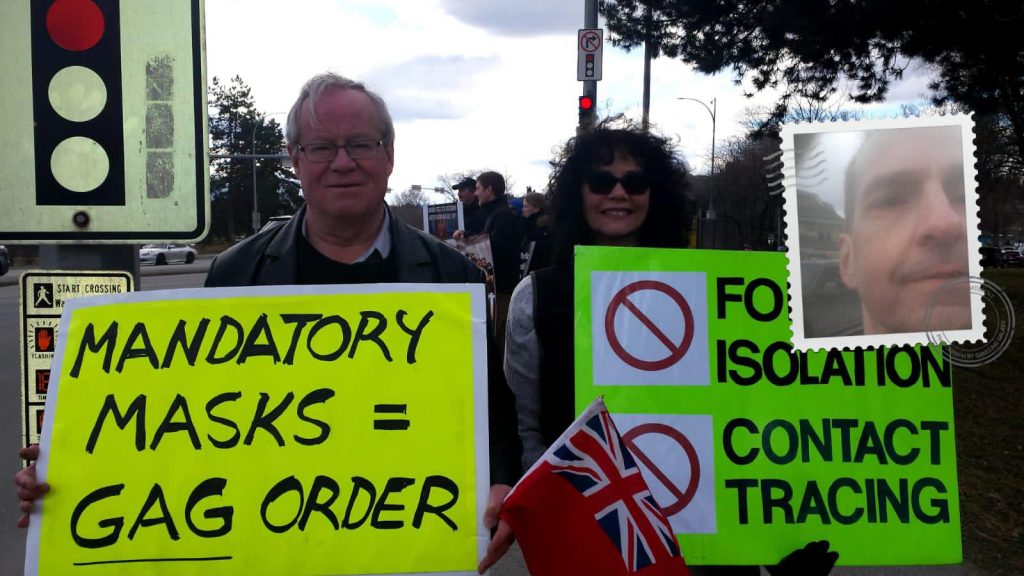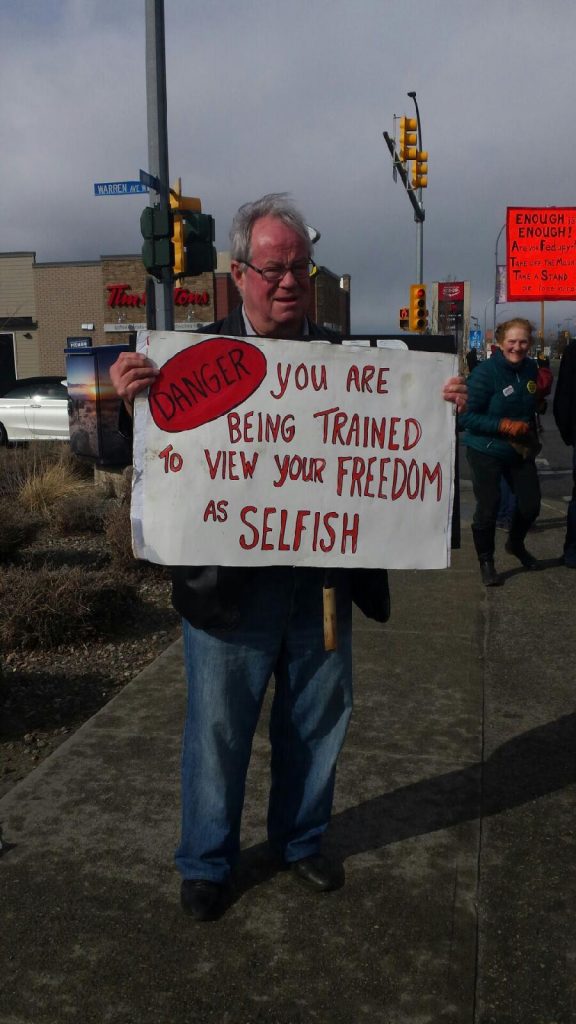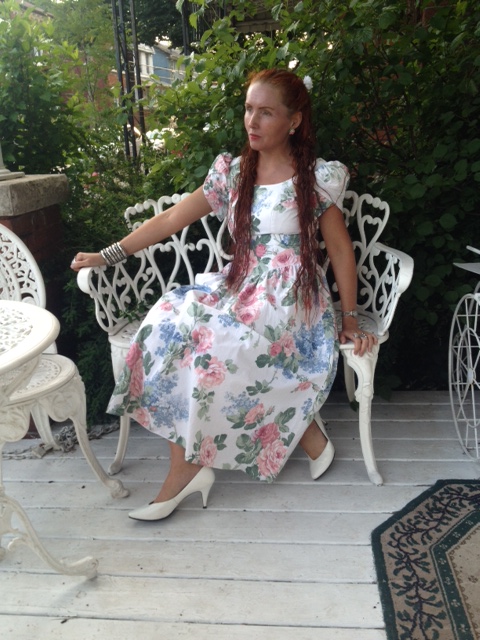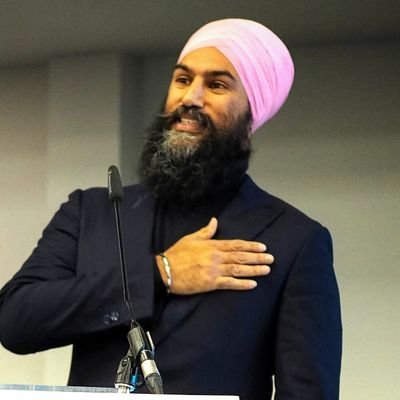
Society & Culture August 2019
Interview With a Condemned Academic
By John Howting
Michael Millerman was a Ph.D. candidate at the University of Toronto when he got into trouble. The trouble wasn’t drugs or alcohol, debt, or academic improprieties. Nor was he troubled by poor academic performance.
The trouble was that he was reading, examining, and translating the works of controversial political thinkers influenced by Martin Heidegger. His dissertation focused on Heidegger’s influence on Leo Strauss, Jacques Derrida, Richard Rorty, and Aleksandr Dugin. The study of Dugin is what started the trouble.
Dugin is a Russian Neo-Eurasianist political philosopher, who served as an advisor to Russian President Vladimir Putin, even earning the nickname “Putin’s Rasputin.” Dugin argues for a political and social system based on the conception of a distinct culture shared by the former USSR member states and rejects the Western neoliberal world order. Dugin has also been branded by his enemies, fairly or unfairly, as a neo-fascist—in part because his greatest influence was Heidegger, who was a member of the Nazi Party, and in part because of his often-incendiary political rhetoric directed at the West, including support for enemies of Western liberalism, such as ISIS.
Millerman, who keeps his own beliefs largely private, has never endorsed Dugin’s views, but believes that he is an influential thinker worth studying. But that was too supportive for his dissertation advisors, several of whom resigned from his committee. But that’s not all. Millerman alleges that some of these former advisors tried to sabotage his efforts to get replacement advisors and to finish his Ph.D. program. He alleges they tried to block his progress while, ironically, publishing articles about their own “thick skin” and admiration for open inquiry in higher learning.
Millerman eventually got his replacement advisors and finished his doctorate in the fall of 2018. He is now the preeminent translator and scholar of Dugin’s works in the West—and is without work in academia. He’s now working as a financial services copywriter in Toronto. In an interview, he said his work on Dugin has taught him a great deal about geopolitics and philosophy, but even more about the intolerance for even discussing right-wing ideas in academia. He said he has no desire to return to academia. If he did, his academic colleagues would probably have a cup of hemlock waiting for him.
[The following interview has been edited for clarity and length.]
What was the topic of your dissertation?
My dissertation examined the influence of the German philosopher Martin Heidegger on the subfield of political science called political theory. Heidegger is widely recognized as one of the most outstanding philosophers of the 20th century.
I argued in my dissertation that our understanding of Heidegger and our understanding of political theory are both impoverished by the fact that we mainly get our Heidegger from his appropriation by the left. That’s why I chose to do a comparative study of four thinkers or schools of thought, ranging from left to right and representing diverse geopolitical constellations: Leo Strauss, Jacques Derrida, Richard Rorty, and Aleksandr Dugin, a less well-known Russian Heideggerian.
Not all scholars approve of the project of trying to liberate Heidegger from leftist or liberal appropriations of his thought. Heidegger was what you could consider a right-wing anti-liberal. In my dissertation I acknowledged the fact that the serious study of right-wing anti-liberalism risks exposing students to supposedly “Nazistic” themes—for instance, homeland, belonging, dwelling, authenticity, and peoplehood—which are legitimate concerns for citizens of a liberal democracy. But I argued that it is also important to guard against an overzealous liberal dogmatism, however well-intentioned. Political theory, or political philosophy, cannot simply take for granted the goodness, or philosophical soundness, of liberal democracy or any other regime type.
What was the reason your dissertation advisors resigned? Why all the controversy?
Not one, but four professors resigned from my committee, including my original supervisor. It was not easy for me to find replacement committee members, and there was a period when I considered dropping out, although I was the top student in the program, held a major national scholarship, and more than 90 percent of my student reviews as a teaching assistant were positive.
On the surface, the controversy surrounded my interest in Aleksandr Dugin. My supervisor had never heard of Dugin before I arrived at the University of Toronto. I had been translating him since 2011 and studying works unavailable in English. My supervisor, by contrast, seems to have Googled Dugin and found in the search results the worst of his crude propagandizing. In the meeting where my supervisor resigned, he read me in a trembling voice a long letter about Dugin’s supposed Satanism and anti-Semitism and wondered which of those I found most appealing. He did not have the professional courtesy or human decency to inquire into the reasons for my interest in Dugin… He told me that Dugin is guilty of hundreds of crimes and that…I was also guilty of them by association. I rejected the logic of guilt by association and defended my interest in Dugin. He told me he was worried about the costs to his reputation in continuing to associate with me. He seems to me to have abandoned the principles he had elaborated in previous writings on the academic study of political philosophy and retreated like a turtle into his ideological shell.
Clifford Orwin, a prominent political theorist at the University of Toronto, was the other original member of my dissertation committee who resigned over Dugin. In our meeting, he told me more or less the following: “Michael, my son is fighting against ISIS in the Middle East. You support Dugin, who supports ISIS. I am a man of principle, and I assume that you are a man of principle. Therefore, there is an unbridgeable gap between us, and I have to resign from your committee.” His reason, then, was that because I study Dugin, and because I embrace aspects of Dugin’s thought, therefore I must embrace his geopolitical anti-liberalism specifically and therefore harbor enmity toward Orwin’s son. As anyone who knows me knows—and Orwin knew me well enough to know this—I support the State of Israel and regard myself as a Zionist. Conspiracy theorizing aside, it is unlikely that my interest in Dugin would stem from or include support for ISIS.
Years later, he telephoned new members of my committee and tried to persuade them not to work with me for political reasons, in one case successfully. After resigning from my committee, and while sabotaging what remained of it, Orwin continued to write op-eds for a Canadian newspaper about the importance of letting graduate students pursue heterodox opinions without persecution or ideological tests. [When asked about Millerman’s characterization of these events, Prof. Orwin declined to comment.]
I gave an interview on Canadian TV about my Dugin research in December 2014. I stated my opinion that I support Dugin inasmuch as he helps us understand that there is more to “the human being” than is contained in the interpretation of the human being as an “individual.” Liberal anthropology does not in my opinion exhaust the spectrum of plausible interpretations of what it is to be human. And for that reason I find Dugin’s writings useful in describing the “blossoming complexity” of human existence.
In the months following that interview, faculty members at my university started to haul me into their offices for a grilling, one after another. They projected their worst nightmares and half-formed opinions into my words, rather than making an effort to understand my meaning.
On the surface, the controversy is over my supposed support for a radical right-wing anti-liberal. More fundamentally, the controversy centers on whether or not there is still a place in the University for genuine political philosophy, which must engage with controversial ideas…The professors who resigned from my committee made a habit of giving other people the impression that they are defenders of political philosophy in that grand or epic sense. But sadly they behaved no better than those they might otherwise dismiss as ideologues under other circumstances.
Eventually, I did have a supportive committee that helped me reason through the philosophical questions motivating my dissertation. They included a scholar of political spiritualities, a Zionist rabbi deeply versed in German philosophy, a charming “Left Platonist” who hates Heidegger, and an expert on Pentecostalism in Africa who served as my replacement supervisor and who was the only original committee member who did not resign—to her eternal credit! And my external reader, who warmly encouraged me not to give up on academic employment, since he, too, thought it was time for philosophy to return to the university.
Do you believe the University should be similar to the way Aristophanes portrays Socrates’ academy in The Clouds, where everything can be questioned and everything is open to academic inquiry?
There should be somewhere within the University where students are encouraged to think without the fear of reprisal, without ideological tests. I do not claim that [academe] must be a free-for-all at all times. There are times to become familiar with the orthodoxies and times to subject them to critical analysis. Before students learn to consider serious objections to liberalism, it is a good idea for them to learn about liberal ideas and institutions and the strongest arguments supporting them. But if they learn only about the latter without the criticism, or if they hear only the criticisms without the original justifications, their learning will be lopsided.
What was strange to me about my own situation was not that genuine inquiry was suppressed, but that it was suppressed for reasons without merit, unrelated to the quality of work, by people who were supposedly champions of inquiry, well after they had agreed to supervise the project. One person who declined to work with me at the outset at least stated upfront that she was in principle unwilling to supervise a dissertation on Heidegger and wouldn’t even read his writings. I understand that better than the people who started and then quit.
By the way, I take Leo Strauss’s analysis of the significance of The Clouds as a friendly warning [from Aristophanes] to Socrates to be correct and instructive. But to be clear, the situation I encountered working on Dugin is not analogous. The people who resigned from my committee did not do so out of a Platonic-Socratic gesture of preserving moderation in the face of pure inquiry. They are rather like offended fathers, and their behavior stems more from psychological projection and low motives than from thoughtful concern for the issue itself.
But to repeat the main point: I don’t claim the University should be a free-for-all, constantly calling the established axioms of every system into question, never advancing along a settled path of inquiry. Nor should it become so settled as to be mentally stultifying. Questioning should not be forbidden. Students who do have an urge to dig deeper into the status of axioms, orthodoxies, settled truths, first principles, and the like, should certainly not be discouraged from doing so on strictly ideological grounds.
Would you put any limits on academic inquiry? Should any thinker be considered off-limits or beyond the pale? If a doctoral candidate approached you to sit on his committee, is there any topic on which he could be studying to which you’d say, ‘I’m sorry, that’s just too much for me?’
It’s hard for me to say for sure. I would like to think that, assuming the student was well-meaning and intelligent, and the topic was not altogether outrageous, and it was within my purview…I would deal with any cases of concern through patient feedback and guidance, with a willingness to have my own initial sensibilities overturned.
In his essay “German Nihilism,” Leo Strauss talks about young Germans who were disillusioned with both liberalism and communism and therefore attracted to politically immoderate, dangerous ideas. He says that what they needed most were old-fashioned, undogmatic teachers who understood where they were coming from and could work with them. The worst thing for such students were clueless progressive teachers, so out of touch as to confirm the students in their own beliefs about the degraded status of the progressive ideologies. If I imagine the best-case scenario of myself as a doctoral supervisor working with young radicals, I see an undogmatic, old-fashioned teacher, understanding, patient, moderate, sympathetic.
If academia is anything worthwhile besides a place for monetizable discoveries and human resources, it has got to be a place where we can entertain thoughts with no regard for whether we find them attractive or not, on their merits alone, with a willingness ourselves to be transformed in the process. Some people who resigned from my committee hold that such willingness implicates oneself in a guilt-by-association logic. For them, for instance, where something is said matters just as much as what is said there; thus if a speaker speaks at a conference of Satanists, he is a Satanist and is thereby academically discredited. There’s a place for guilt-by-association thinking as a general rule of thumb in life: You may not want friends who befriend people you find objectionable. But guilt by association is a poor rule of thumb for the life of the mind. I believe that professors who operate with a guilt-by-association logic leave themselves unequipped to deal with “passionary” young men and risk further radicalizing them as a result, whereas a patient engagement with them could have a moderating effect. If you chase these students out of your polite society, they will start getting their fix from YouTube superstars and possibly from an online underground, where it may be harder to regulate and oversee the quality of the arguments.
If I thought that a proposed dissertation was a justifiable contribution to research in political science or political philosophy, and if I was the man for the job, I would supervise it, regardless of whether it risked crossing my red lines. I myself don’t know exactly what those lines are or where they’re drawn. I suppose you find that out, more than anything, in the course of doing the job. My professors discovered that Dugin was a red line for them—so be it. But that forces a reinterpretation of their previously stated positions in political theory and political philosophy, and it does not justify subsequent efforts at professional sabotage.
As you say, “I myself don’t know exactly what those lines are or where they’re drawn. I suppose you find that out more than anything in the course of doing the job.” Is that not what happened with your advisors? They didn’t know where their own red lines were, they were doing their jobs, and then they found their limits?
They seemingly did find a limit that they were not aware of before they agreed to be on my committee. But recall that, in one case, a committee member was telephoning new committee members behind my back, years later, to persuade them not to work with me, at about the very time that he was writing op-eds on how “exposure to different points of view is the core of higher learning”—op-eds in which he wrote the following: “Universities are not and must not become enablers of the thin skinned who would rather repress views contrary to their own than rise to the challenge of debating them.”
Orwin wrote that after precisely trying to repress my views by making it difficult for me to have a committee and to complete my program. Needless to say, neither he nor anyone else who resigned from my committee or called me a fascist sympathizer and the like ever showed the slightest interest in debating, or even understanding, the specific details of my work on Dugin and his reading of Heidegger.
So, what’s crucial isn’t that they found their limits, but that they engaged in unprofessional, underhanded efforts at sabotage, while posturing publicly in a manner betrayed by their conduct. Again, Orwin also wrote op-eds on what “professors owe to their graduate students” that reeks of hypocrisy. He wrote others on the importance of thick skin and debate. This from a person who resigned from my committee because, as he basically put it, my work on Dugin means I support ISIS, and his son is fighting ISIS, therefore he can’t supervise me. Where are the arguments? Where is the debate? Where is the thick skin?
Moreover, we can learn something about Heidegger and the limitations of…the field of political theory by doing a comparative study that brings the unique Russian reception of Heidegger to the table. That’s what I did in my dissertation. Yet “serious academics” turned their back on the project and in some cases apparently tried to kill it altogether because…ISIS?
So you see, the whole affair is about more than the red lines of some individual professors who might have discovered a blind spot and been forced to reconsider some things. It raises fundamental questions about the constitution of the fields of political theory and political philosophy in the West after WWII, and about the university as a place for original intellectual inquiry—not only in the pious speeches of its public posturers but in practice.
The issue is not that all but one of my original committee refused to work with me, but that there is a larger refusal at play; a refusal, perhaps, of the thoughtful consideration of the truth of being. What is the philosophical significance of the fact that Heidegger’s concept of the “history of being” is taken more seriously in Russia and elsewhere outside the West than in the West? At stake is the question of the essence of philosophy in the West today.













